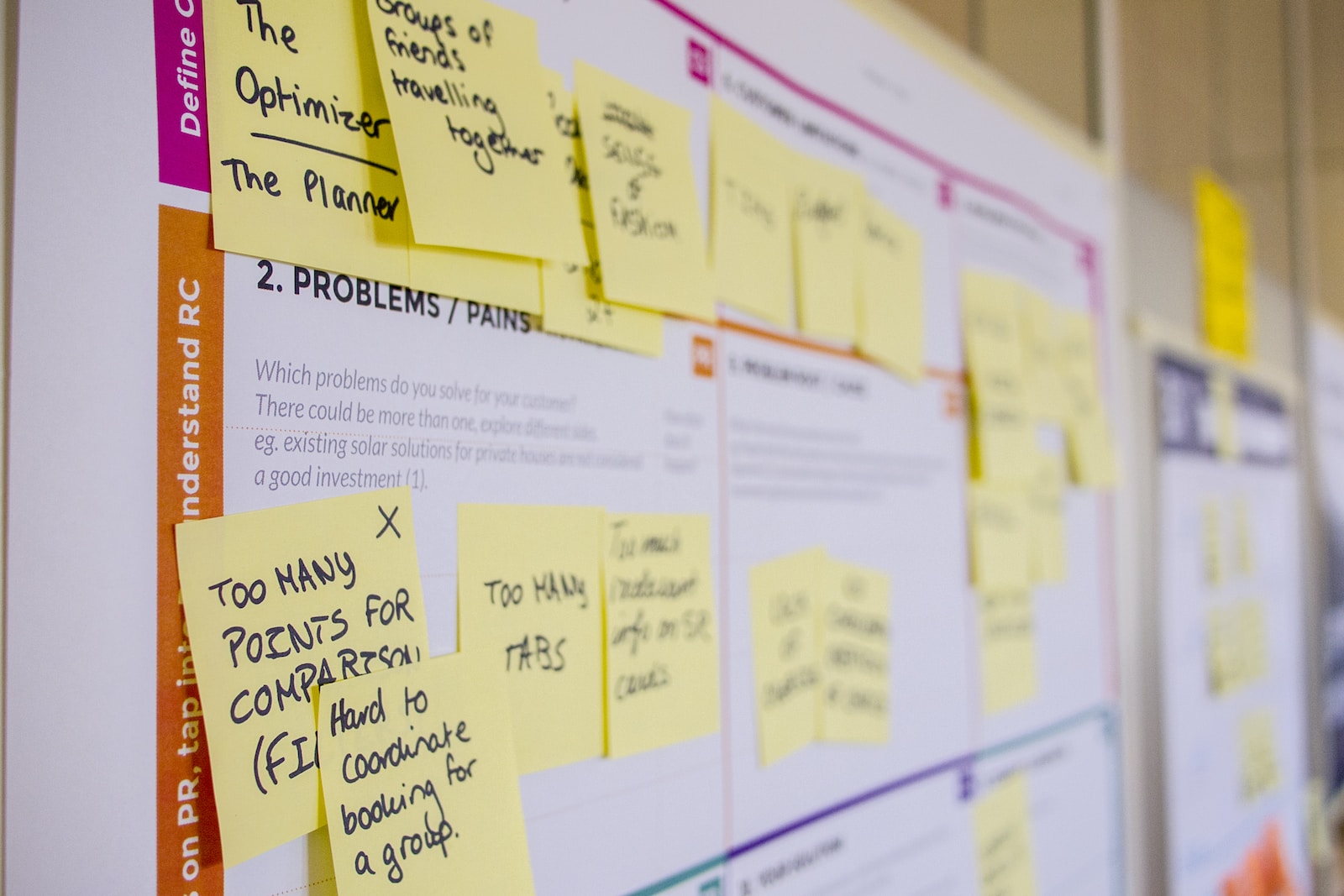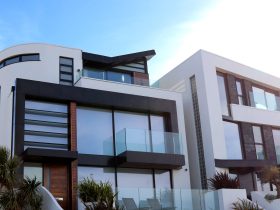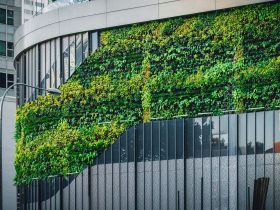Welcome to a glimpse of the future of ethical real estate. As the world continues to grapple with the effects of climate change and environmental degradation, the real estate industry is stepping up to the challenge. In this article, we will explore the emerging trends and sustainability practices that are shaping the future of ethical real estate.
The Importance of Ethical Real Estate Practices
Ethical real estate practices are becoming increasingly important as society becomes more aware of the impact of human activities on the environment. Sustainable development is no longer just a buzzword; it has become a necessity. Developers, architects, and investors are recognizing the need to create buildings and communities that minimize their carbon footprint and promote a healthier and more sustainable way of living.
One of the key aspects of ethical real estate is the incorporation of green building techniques. These techniques involve using sustainable materials, integrating energy-efficient designs, and utilizing renewable energy sources. For example, solar panels can be installed on rooftops to generate clean and renewable energy, reducing reliance on fossil fuels. Rainwater harvesting systems can also be implemented to collect and reuse rainwater for various purposes, such as irrigation and toilet flushing. These sustainable features not only benefit the environment but also help homeowners save on utility bills.
In addition to green building techniques, ethical real estate practices also involve prioritizing social responsibility. Developers are increasingly focusing on creating inclusive and accessible communities that cater to the needs of all residents. This includes building affordable housing options to address the housing crisis, incorporating universal design principles to ensure accessibility for people with disabilities, and providing amenities that promote health and well-being. By prioritizing social responsibility, ethical real estate aims to create communities where everyone feels welcome and supported.
![]()
Image Source: FreeImages
Emerging Trends in Ethical Real Estate
The future of ethical real estate is bright, with several emerging trends that are reshaping the industry. One such trend is the rise of eco-friendly neighborhoods. These neighborhoods are designed with sustainability in mind, incorporating features such as green spaces, pedestrian-friendly layouts, and access to public transportation. The goal is to create communities that promote a healthier lifestyle and reduce dependence on cars, ultimately reducing carbon emissions.
Another emerging trend is the use of smart home technology. Smart homes are equipped with Internet of Things (IoT) devices that allow homeowners to control various aspects of their homes remotely. This technology not only enhances convenience but also enables homeowners to optimize energy usage, reduce waste, and enhance security. For example, smart thermostats can adjust the temperature based on occupancy patterns, saving energy and reducing utility costs. Smart lighting systems can automatically turn off lights when a room is unoccupied, reducing energy waste. These technological advancements are revolutionizing the way we live and interact with our homes.
Sustainability in Real Estate Development
Sustainability is at the core of ethical real estate development. Developers are increasingly adopting sustainable practices to minimize the environmental impact of their projects. One way this is achieved is through green building certifications and standards. Certifications such as LEED (Leadership in Energy and Environmental Design) and BREEAM (Building Research Establishment Environmental Assessment Method) ensure that buildings meet stringent criteria for energy efficiency, water conservation, and indoor air quality. By obtaining these certifications, developers demonstrate their commitment to sustainability and provide reassurance to potential buyers or tenants.
Furthermore, sustainable design principles are being integrated into real estate development. Design features such as natural lighting, proper insulation, and efficient ventilation systems not only reduce energy consumption but also enhance the comfort and well-being of occupants. By prioritizing sustainable design, developers are creating spaces that are not only environmentally friendly but also beneficial for the people who inhabit them.
The Role of Technology in Ethical Real Estate
Technology plays a vital role in the sustainable evolution of real estate. As mentioned earlier, smart home technology allows homeowners to optimize energy usage, reduce waste, and enhance security. But technology goes beyond just smart homes. Real estate companies are leveraging data and analytics to make informed decisions about property management and resource allocation. For example, sensors can be installed in buildings to monitor energy usage, water consumption, and air quality, allowing for proactive maintenance and optimization.
Virtual reality (VR) and augmented reality (AR) are also transforming the real estate industry. These technologies allow potential buyers to view properties remotely and visualize how spaces can be customized to meet their needs. This not only saves time and resources but also reduces the carbon emissions associated with travel. Additionally, VR and AR can be used in the design and planning stages of real estate projects, enabling stakeholders to make more informed decisions and minimize waste.
The Impact of Sustainable Design on Property Value
Sustainable design not only benefits the environment and the well-being of occupants but also has a positive impact on property value. As more homebuyers prioritize sustainability, properties with green features and certifications are likely to command higher prices and attract a larger pool of potential buyers. Energy-efficient homes not only save money on utility bills but also offer long-term cost savings, making them an attractive investment. Additionally, sustainable communities that prioritize social responsibility and inclusivity are likely to foster a sense of belonging and community, further enhancing property value.
Ethical Real Estate Investment Opportunities
Investing in ethical real estate offers both financial and ethical benefits. As the demand for sustainable and socially responsible properties continues to grow, investors have the opportunity to generate long-term returns while making a positive impact on the environment and society. Ethical real estate investment options include green bonds, real estate investment trusts (REITs) focused on sustainable properties, and crowdfunding platforms that connect investors with sustainable development projects.
By investing in ethical real estate, investors can align their financial goals with their values and contribute to a more sustainable and equitable future.
Case Studies of Successful Ethical Real Estate Projects
To illustrate the impact of ethical real estate practices, let’s explore a few case studies of successful projects that have embraced sustainability and social responsibility.
- The Edge, Amsterdam: This office building is considered the greenest building in the world. It utilizes solar panels, energy-efficient lighting, and smart sensors to optimize energy usage. The building also incorporates sustainable materials and features an indoor garden that purifies the air.
- Beddington Zero Energy Development (BedZED), London: This sustainable housing development incorporates a range of eco-friendly features, including solar panels, rainwater harvesting systems, and passive ventilation. The development also prioritizes community engagement and provides amenities such as communal gardens and a car-sharing scheme.
- Barangaroo South, Sydney: This waterfront development is committed to achieving carbon neutrality and has set ambitious sustainability targets. The development features energy-efficient buildings, a centralized recycled water system, and extensive green spaces. Additionally, Barangaroo South promotes active transportation by providing bicycle parking and pedestrian-friendly streets.
These case studies demonstrate that ethical real estate projects can be successful both financially and environmentally, providing inspiration for future developments.
Conclusion: The Future of Ethical Real Estate
The future of ethical real estate is promising, as sustainability and social responsibility become integral parts of the industry. Developers, architects, and investors are recognizing the importance of creating buildings and communities that minimize their environmental impact and prioritize the well-being of residents.
Emerging trends such as eco-friendly neighborhoods and smart home technology are reshaping the way we live and interact with our homes. Sustainable design principles and green building certifications are ensuring that buildings meet stringent criteria for energy efficiency and environmental performance. Technology is playing a vital role in optimizing energy usage, reducing waste, and enhancing security.
Investing in ethical real estate not only offers financial returns but also allows investors to contribute to a more sustainable and equitable future. Successful case studies demonstrate that sustainable practices can be implemented in various types of projects, from office buildings to housing developments.
As we move towards a future where ethical real estate is the norm, it is important for all stakeholders to embrace sustainable practices and work together to create a more sustainable and inclusive built environment. By doing so, we can create a future where real estate not only meets our needs but also respects the planet and promotes the well-being of all.
































